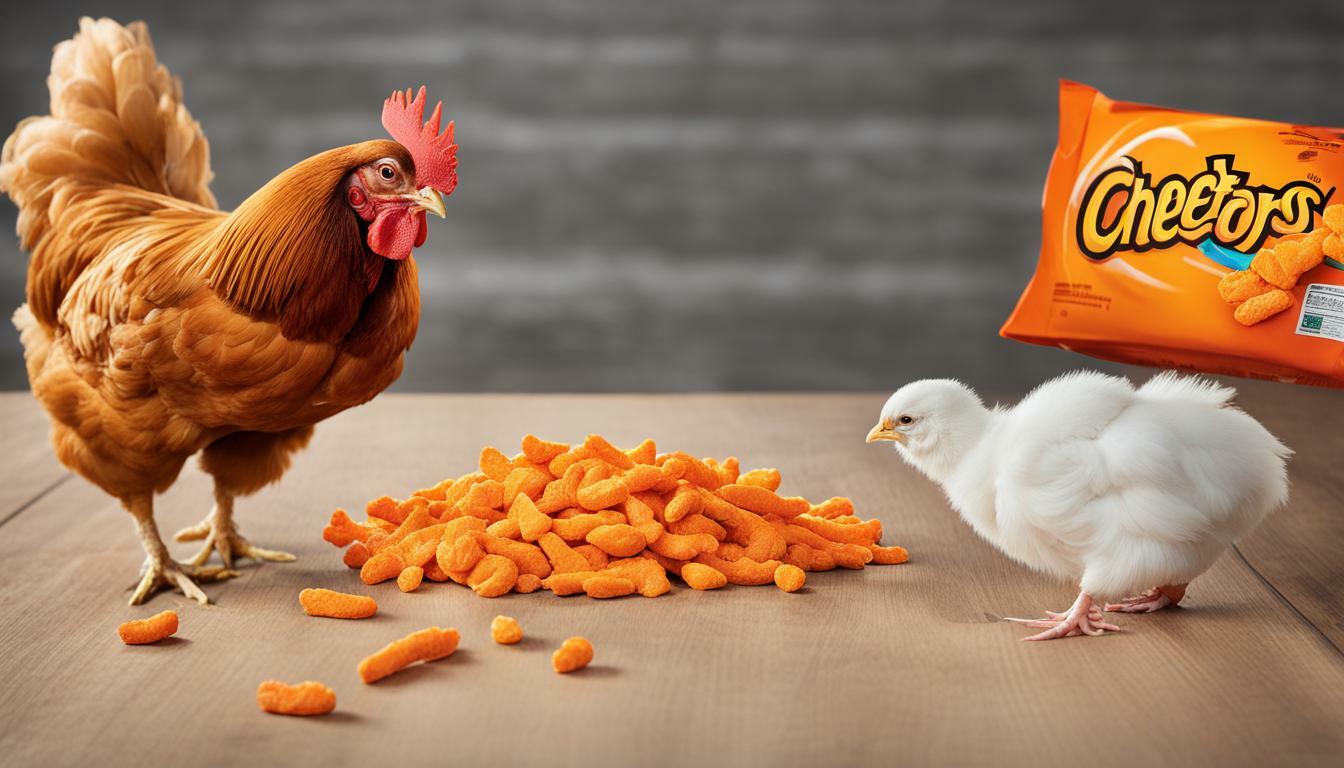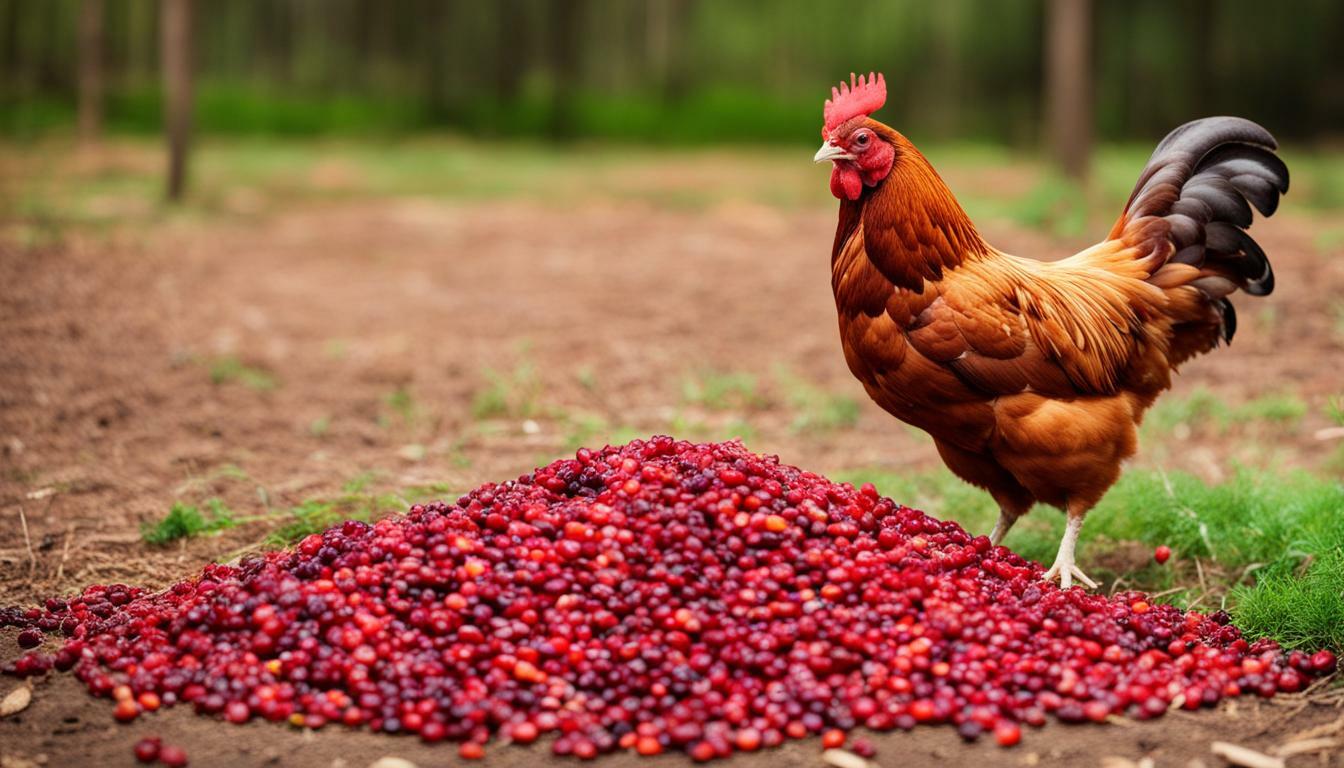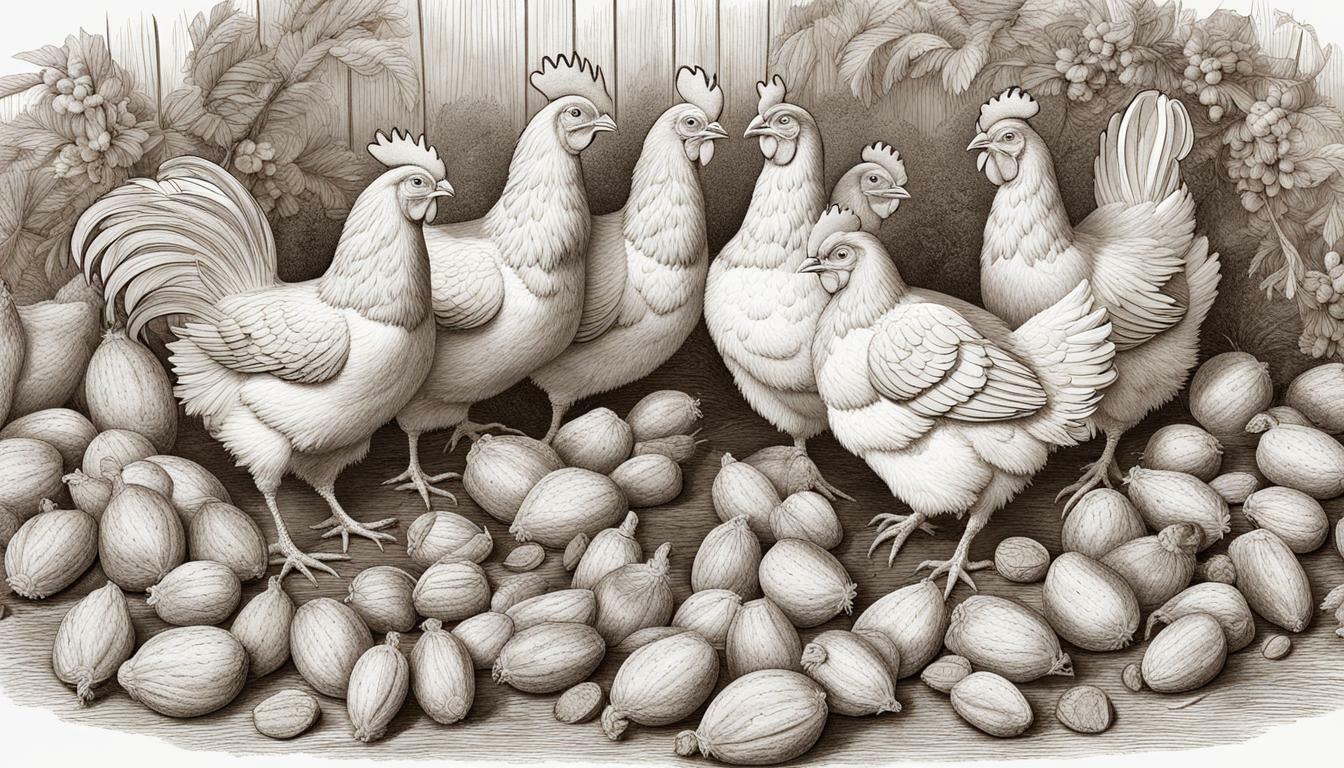Can Chickens Eat Cheetos? Find Out The Surprising Answer!

Table of content:
- What Human Foods Can Chickens Eat?
- Can Chickens Eat Chips Like Cheetos?
- Are Cheetos Toxic to Chickens?
- Should You Feed Chickens Chips Like Cheetos?
- Do Chickens Like Cheetos and Cheese Snacks?
- What Chicken-Safe Snacks Can You Offer?
- Is Feeding Chickens Junk Food Unhealthy?
- Healthy Feeding Practices for Chickens
- Final Thoughts
Chickens are curious creatures that will peck and eat almost anything. Cheetos seem like an appealing snack to us humans, but are Cheetos bad for chickens? Here’s what you need to know about feeding Cheetos and other junk food to your flock.
What Human Foods Can Chickens Eat?
Chickens are omnivores, meaning they eat both plant and animal materials. Their natural diet consists of seeds, insects, and plants like grass and greens. However, chickens kept as pets or for egg laying often enjoy treats of human food.
Some human foods chickens can eat include:
- Fruits like apples, berries, melons, and oranges
- Vegetables like lettuce, cabbage, broccoli, and squash
- Cooked rice, pasta, and potatoes without seasoning
- Small amounts of cooked meat and eggs
- Healthy table scraps like tops of vegetables and fruit peels
In general, chickens can eat a wide variety of fruits, vegetables, grains, and proteins. But not everything from the human diet is safe.
Can Chickens Eat Chips Like Cheetos?
Cheetos fall into the category of salty, crunchy snack foods like potato chips, Doritos, and cheese puffs. So can chickens eat chips like Cheetos?
The answer is yes, in moderation. Most chips and puffed snacks like Cheetos contain these basic ingredients:
- Corn, wheat, or potato flour
- Vegetable oil
- Salt
- Cheese or artificial flavors
Corn and wheat products are fine for chickens. The oils and fats provide concentrated calories. And chickens love salt.
So salty snacks shouldn’t immediately harm your birds. However, these foods have very little nutritional value. Junk food like Cheetos lacks the vitamins, minerals, and amino acids chickens need.
Too much fat and sodium is unhealthy. And cheese flavored chips are full of artificial colors and preservatives, which serve no purpose for chickens.
Are Cheetos Toxic to Chickens?
Cheetos themselves are not toxic, poisonous, or immediately dangerous to chickens. However, they are very unhealthy as a regular part of their diet.
Junk food like Cheetos has these risks:
- Obesity from too many calories and fat
- Nutritional deficiencies and poor egg production
- Digestive issues like diarrhea or impaction
- Increased cholesterol and salt levels
- Reduced immunity to disease
Also, Cheetos’ bright artificial colors may tint a chicken’s earlobes or egg yolks if fed in excess.
So while not directly toxic, Cheetos are bad for chickens. The high fat, sugar, and sodium content makes them a poor dietary choice.
Should You Feed Chickens Chips Like Cheetos?
Chickens don’t understand moderation very well. If offered treats like Cheetos, they will usually overeat.
To ensure proper nutrition, chicken feed should make up at least 90% of their total diet. Supplements, snacks, and table scraps should be no more than 10%.
A few Cheetos now and then as a rare treat won’t seriously harm your flock. But they shouldn’t become a regular snack.
Here are some better ways to feed snacks:
- Offer only in very small amounts
- Limit to 1-2 times per week maximum
- Split treats among the flock so chickens don’t fight
- Provide alternatives like cracked corn, bird seed, veggies, or mealworms
Free-choice feeding allows chickens to graze on treats all day, which can quickly lead to obesity and other issues. Timed, measured servings are healthier.
Overall, chips are bad for chickens as anything but an occasional treat. Stick to their formulated feed and offers lots of fresh foods for better nutrition.
Do Chickens Like Cheetos and Cheese Snacks?
Yes, most chickens seem to find Cheetos and similar snack foods highly appealing. Here’s why:
- Crunchy, crispy texture
- Strong cheesy aroma
- Bright colors
- Savory, salty flavor
- Small bite-size pieces
To a chicken, Cheetos probably taste and smell like a very tempting grub or insect. Chickens are wired to be attracted to protein-rich foods.
The abundant salt content also drives consumption. Chickens have a natural craving for salt.
When offered alternatives like chicken feed, fresh fruits, veggies or bugs, Cheetos may be less enticing. But they’re purposefully designed to taste very good to humans, and chickens gravitate toward that too.
So yes, expect your flock to find Cheetos irresistible. Be sure not to make it a regular habit.
What Chicken-Safe Snacks Can You Offer?
Instead of unhealthy human snacks like Cheetos, provide your chickens with healthier, more natural treats. Here are some better options:
Fruits and Vegetables
Favorites include cucumbers, cabbage, celery, tomatoes, apples, bananas, melons, berries, citrus fruits, squash, peas, and greens. Offer bite-sized pieces.
Cooked Grains
Small portions of rice, oats, pasta, baked goods, or bird seed. Avoid adding salt, spices, or sugar.
Dairy in Moderation
Small amounts of plain yogurt, cheese, or cottage cheese. Avoid using milk, which chickens cannot digest.
Meat and Eggs
Cook turkey, chicken, beef, organ meats, or eggs. Remove skin, bones, and fat first.
Garden Treats
Offer vegetable trimmings, sprouts, herbs, edible flowers, chopped greens, and compost scraps.
Live Insects
Crickets, grasshoppers, mealworms, and maggots provide natural protein. But limit portions to avoid obesity.
Other Ideas
Peas, beans, soaked bread crumbs, nuts, seeds, dried fruit, fish, or rabbit pellets.
Rotate different treats to add variety and nutrition to their diet. Chickens can safely enjoy most fresh, whole foods in moderation.
Is Feeding Chickens Junk Food Unhealthy?
Yes, serving chickens food like Cheetos, chips, crackers, fries, donuts, candy and other human junk food regularly is unhealthy for several key reasons:
Lacking in Nutrition
These foods provide calories but minimal nutritional value. Chickens need a balanced diet with complete protein, amino acids, fatty acids, vitamins, and minerals.
High in Fat, Sugar and Salt
Too much fat, cholesterol, sugar and sodium is harmful just like in humans. Excessive amounts can cause obesity and other health issues.
Increased Risk of Illness
Poor nutrition weakens the immune system. Increased bacteria from human foods can also cause digestive illnesses like diarrhea.
Weight Gain and Organ Stress
Overeating fattening foods routinely leads to overweight chickens. Excess fat strains the liver, kidneys and heart.
Behavior Issues
Competition for limited junk food can increase aggression and disrupt the pecking order. Chickens may fight and bully each other.
Reduced Egg Laying
Hens on a poor diet will lay fewer or smaller eggs. Key nutrients like protein, calcium and omega-3s drive proper egg production.
Shorter Lifespan
Chickens fed mostly empty junk foods are unlikely to live as long as chickens fed a healthy whole food diet.
For best health, chickens should eat a varied diet centered on quality poultry feed. Avoid making chips, sweets, and fried foods dietary staples.
Healthy Feeding Practices for Chickens
Here are some tips for providing your backyard flock with great nutrition:
- Feed a complete organic poultry feed formula as their dietary base
- Provide at least 1/2 cup feed daily per hen, 1 cup per rooster
- Use metal feeders to reduce waste and moldy feed
- Offer fresh water daily, allow 1-2 inches per bird
- Scatter scratch grains like oats or corn for foraging
- Offer a vitamin supplement 2-3 times a week
- Give birds free-choice access to insoluble grit
- Provide oyster shell for calcium
- Allow free-range grazing when possible
- Supply at least 1 square foot of coop space per bird
- Ensure proper roosting space and clean litter
- Add nest boxes, dust baths, roosts, and perches
- Share scraps, fruits, veggies, and greens daily
- Offer healthy treat supplements 2-3 times per week
- Remove spoiled, moldy, or contaminated food immediately
- Store feed securely in galvanized metal bins
- Keep feed and water stations clean, avoid moisture
- Check feeders and waters twice daily, refill as needed
Feed provides the bulk of nutrition, while scraps and treats add variety. Avoid overdoing high-fat, high-sugar, high-salt extras. When in doubt, think whole, natural foods.
Final Thoughts
Cheetos aren’t toxic to chickens, but should only be fed in very limited amounts as a treat. Routine feeding of Cheetos and other junk foods can lead to obesity, illness, and malnutrition. While chickens may love the taste of these snacks, the lack of nutrition makes them unhealthy as anything but a rare indulgence. For a balanced flock diet, choose quality complete feeds, supplements, fruits, veggies, greens, and healthy natural treats like mealworms. With proper care and feeding, chickens can live long, productive, happy lives.
Welcome. I’m Adreena Shanum, the proud owner of this website, and I am incredibly passionate about animals, especially poultry. I founded adreenapets.com as a labor of love, stemming from my desire to share my knowledge and experiences with poultry enthusiasts worldwide.




